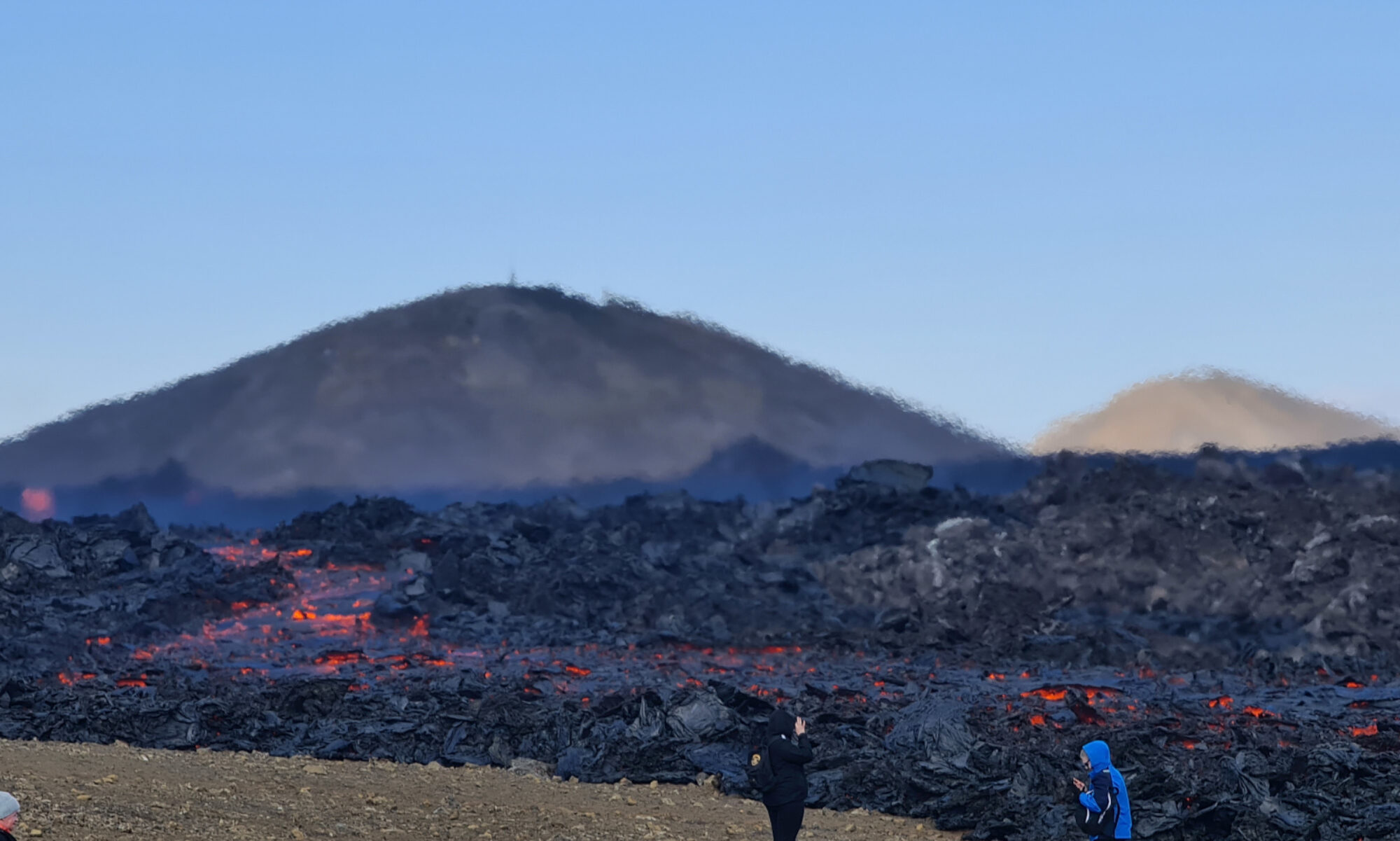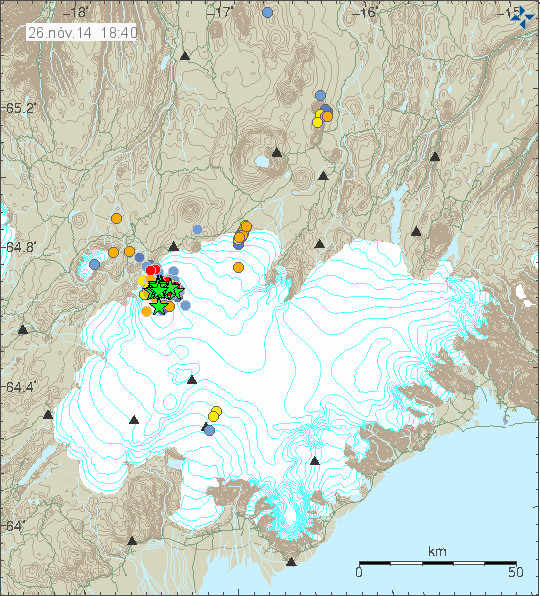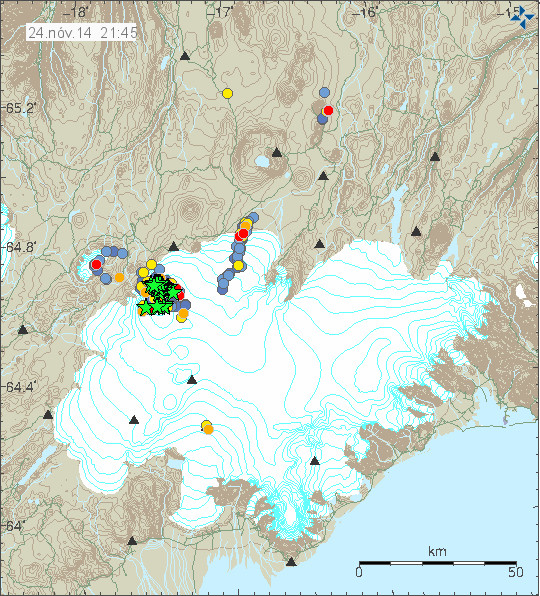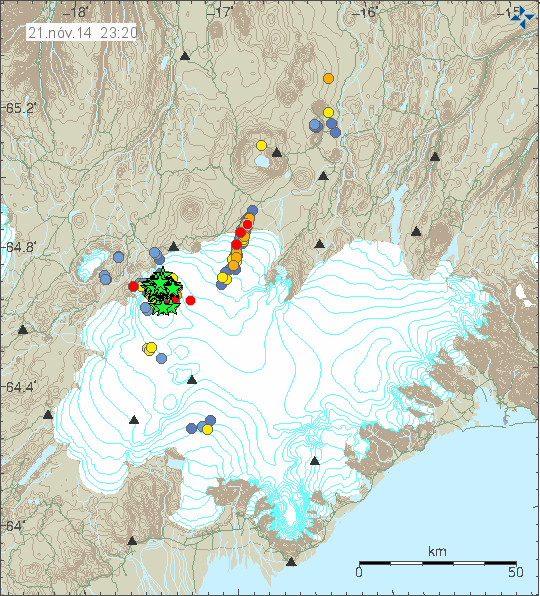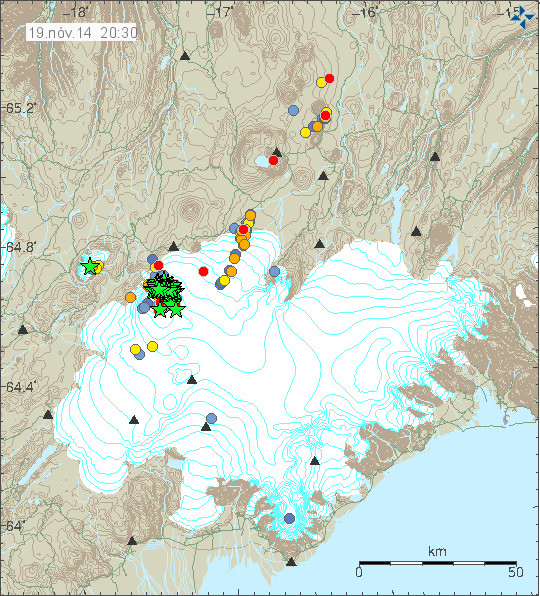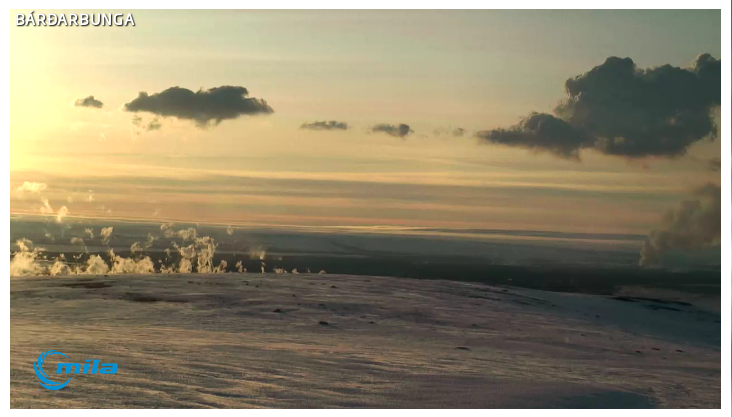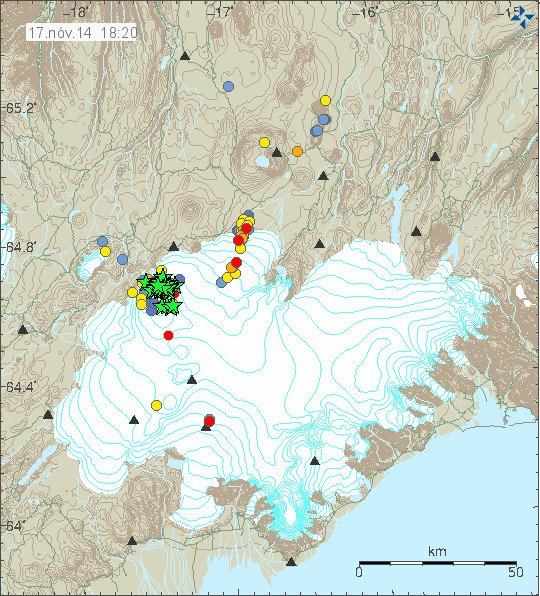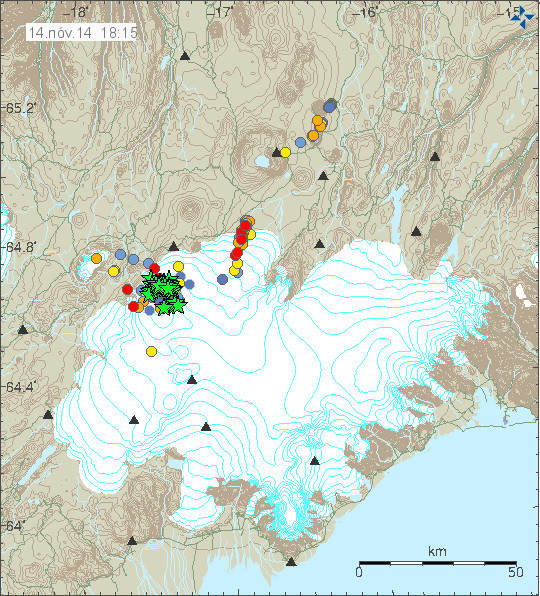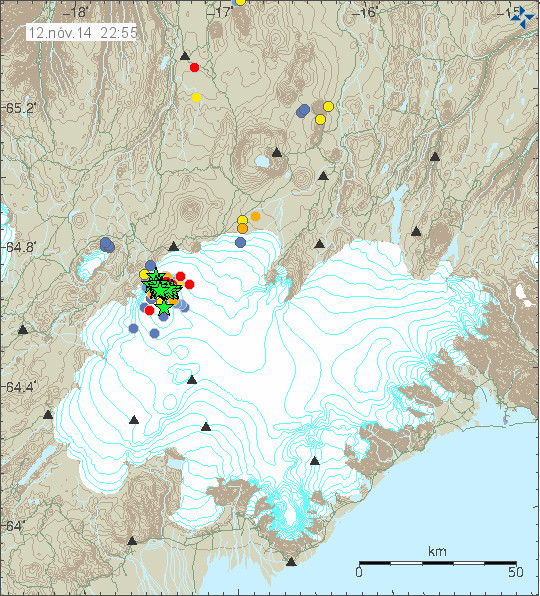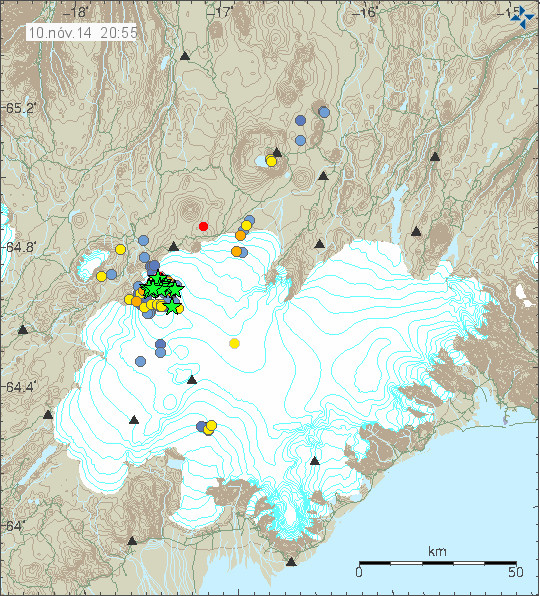This is going to be a short update.
There has been a lack of reports in the news today of the eruption in Holuhraun today. Web cameras show no major change in the eruption far as I can tell. The lava field is now getting thicker as is clear by this images (text is in Icelandic) where the lava is overflowing from older lava (1 – 3 month old). Far as I know the pulse behaviour continues, I don’t know to what extent it has been, or if it has changed from original observations of it.
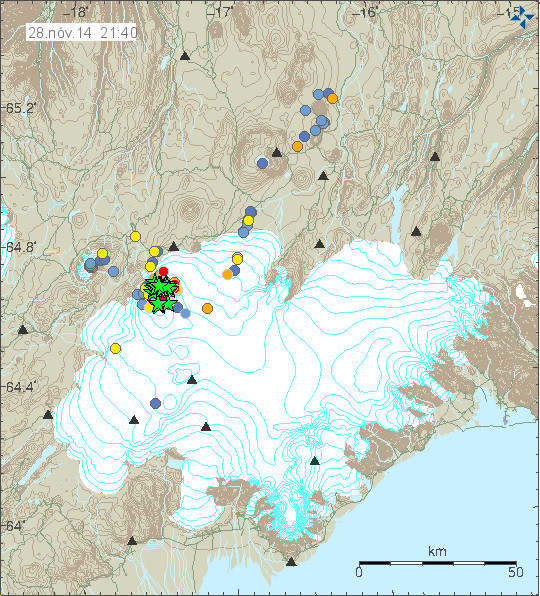
The earthquake activity in Bárðarbunga volcano for the past 48 hours. Copyright of this image belongs to Icelandic Met Office.
Largest earthquake for the past 24 hours had the magnitude of 5,1 and happened in north-east part of the caldera. Where the most of the large earthquakes happen in recent weeks. I am not sure why that is. According to measurements that where taken yesterday the total caldera subsidence is now around 50 meters, there doesn’t seems to be any change taking place in rate of subsidence. At least that has not been covered in the news or reported far as I know. The reason why GPS signal is now longer being received is that the GPS station is now so low that it is out of line of sight for the relay station it uses to forward the signal. This also means IMO is not getting any signal from the seismometer located in the same area as the GPS station. This is according to latest report on activity in Bárðarbunga volcano. Far as I know there is nothing else to report.
Donations: Please remember to support my work with donations or by using Amazon to buy stuff for Christmas. Thanks for the support.
Moving back to Iceland: Next week I move to Iceland. This means that the last update before I move is going to be on Monday 1-December-2014. I don’t think that I have time to write update on Wednesday 3-December-2014. After that the update schedule is a bit of a mystery. Once I have my things from Denmark I am going to start regular updates as I am doing now. I don’t know for sure when I get my stuff, I hope it won’t be no later than 22-December-2014.
